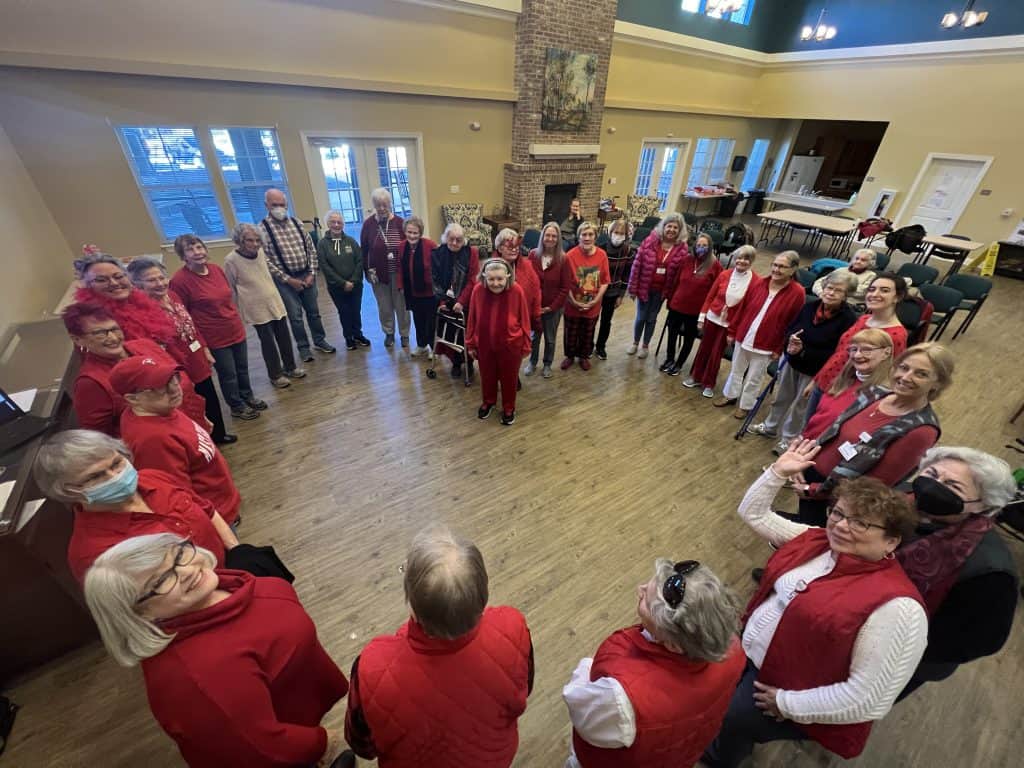
Nurse News: Heart Health Awareness Month
February is American Heart Month. Prioritizing your heart health is important, especially as heart disease is the leading cause of death in America. Bringing awareness to heart health helps us recognize signs and symptoms of heart attacks, cardiac arrest, and other serious conditions that affect the heart. Our Community Nurse shared 10 interesting facts about the heart with our residents in our recent community newsletter, The Connector, and we thought it worthwhile to share with our greater online community.
Here are 10 things you may not know about this incredible organ:
- Your heart beats over 100,000 times per day.
- Your heart pumps about 1.5 gallons of blood every minute. Over the course of a day, that adds up to over 2,000 gallons.
- There are 60,000 miles of blood vessels in your body. That’s enough to go around the world twice.
- The average heartbeat of a woman is about 8 beats a minute faster than a man’s heartbeat.
- An adult heart is about the size of 2 hands clasped together. A child’s heart is about the size of a fist.
- Other than the cornea, every cell in the human body gets blood from the heart.
- The right side of your heart pumps blood into your lungs. The left side of your heart pumps blood back through your body.
- The most number of heart attacks occur each year on Christmas Day. The day after Christmas and New Year’s Day are close behind.
- More heart attacks happen on a Monday than any other day of the week.
- Heart disease is the number 1 cause of death in the United States. That’s why it’s important to be good to your heart by following a heart-healthy lifestyle.
Movement throughout our day and choosing healthy foods can have a big impact on our heart health. Next week, our Director of LifeMinistries, Cheryl Wallen, will present on “Recognizing Differences in Heart Attack Symptoms and Heart Disease Prevention.” We look forward to seeing our community dressed in red to raise awareness of how to help eradicate heart disease and stroke in millions of men and women all over the nation. Educating ourselves on the contributing factors of heart disease can help us live longer and healthier. By understanding symptoms, we will be better prepared to help our family, friends, and neighbors in need who may be at risk.
